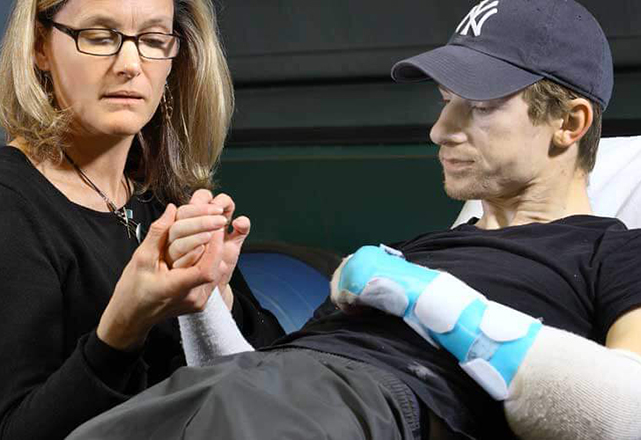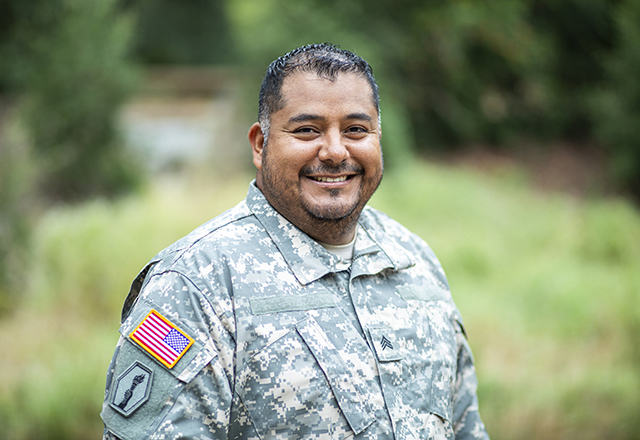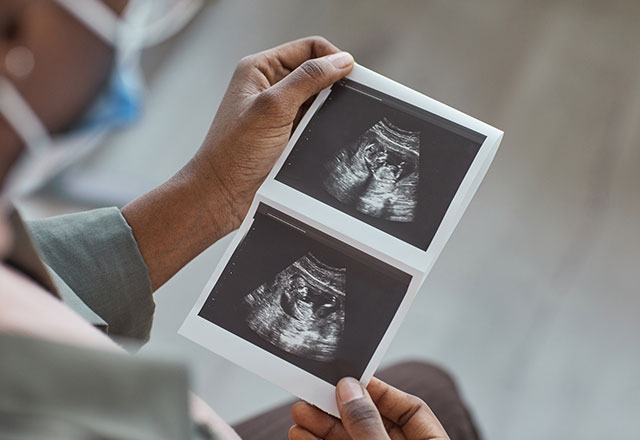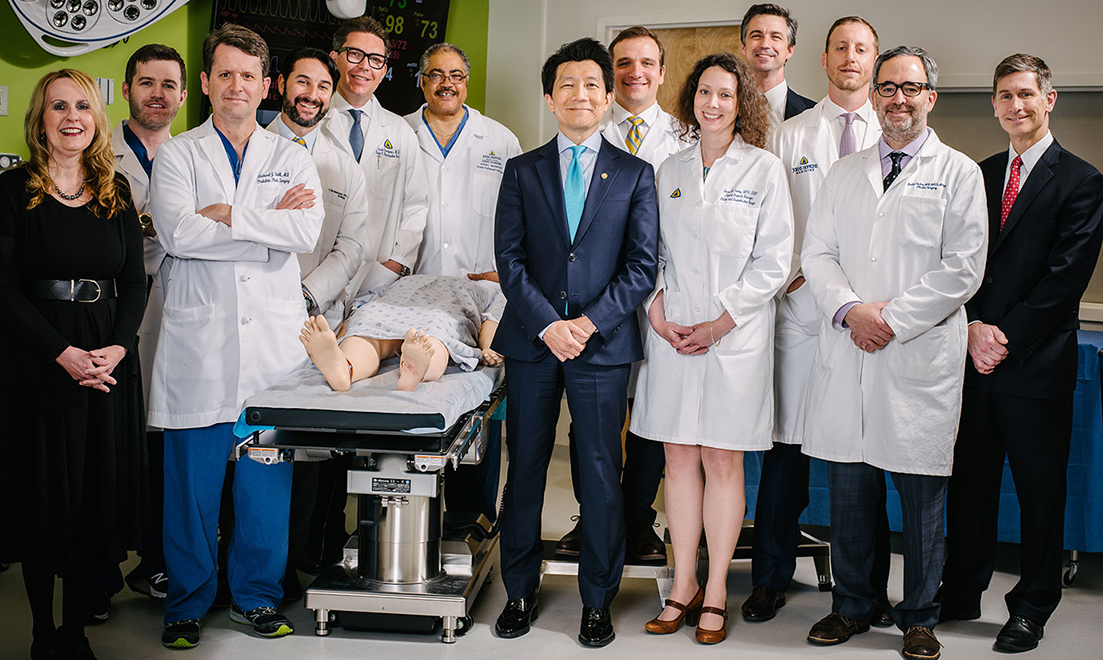Life-Altering Transplant Procedures
The Johns Hopkins Reconstructive Transplant Program restores lives by transplanting external features or limbs from deceased donors to patients.
We have been recognized as a national leader in reconstructive transplantation research. Our research has allowed us to make advancements in reducing anti-rejection for transplant patients, ensuring recipients have an uninterrupted life.
Learn more about the research programs we offer:
Why Choose Johns Hopkins for Reconstructive Transplant?
Our program helps patients gain confidence and control over their lives by reconstructing limbs, tissue and faces.
Multidisciplinary Team
Our multidisciplinary team consists of reconstructive and transplant surgeons, physical therapists, social workers and psychiatrists for an effective procedure.

Veteran Organization Collaboration
We specialize in providing transplants for wounded veterans. Our program collaborates with the Walter Reed National Military Medical Center to provide the best care for service men and women.

Innovative Transplant Research
Our ongoing research pursuits have improved transplant procedures and the longevity of the donated tissues in transplant recipients.
Taking Steps to Reduce Transplant Rejection
Our specialists perform vascularized composite allograft (VCA) which are transplants composed of several kinds of tissues like skin, muscle and bone which can be made to construct limbs and faces. To reduce the chance of transplant rejection, our specialists treat patients with antibodies on the day of their transplant procedure, followed by a donor bone marrow infusion several days later.
Research Study: IRB #NA_00046418
Learn the answers to frequently asked questions about this process:
-
Surgeons and researchers working on VCA research at Johns Hopkins are using an immunomodulatory/minimization protocol for immunosuppression after the transplant procedure in two steps:
- The transplant recipient is treated with antibodies on the day of transplant.
- The patient will then undergo a donor bone marrow infusion several days later.
This procedure allows patients to be treated with low doses of a single maintenance drug after being transplanted.
In the last decade, around more than 200 different VCA surgeries have been performed with great success including more than 130 hand and upper extremity transplants and 45 face transplants. Nevertheless, since its inception, VCA has encountered much speculation, debate, controversy, and scrutiny. Early world outcomes have confirmed that satisfactory-to-excellent function can be achieved with these types of procedures.
This process helps minimize the risks of high-dose multiple drug therapy that is required to prevent rejection. Immunomodulatory Protocol that aim to reduce maintenance have been studied extensively in our laboratory and in solid organ transplantation. Our team have successfully implemented this protocol in 9 patients receiving arm/hand transplants or penile transplants. We look forward to continuing to use this protocol for all our patients receiving upper extremity, face, or urogenital transplants.This treatment option in clinical VCA will allow us to treat complex and major tissue defects that will not be able to be reconstructed using conventional techniques with minimal anti rejection medication.
-
Induction therapy with antibodies together with multi-drug maintenance therapy is the standard treatment for reconstructive transplants. This treatment, while effective, can cause complications including infection and drug toxicity. These effects can jeopardize a successful transplant.
-
An ideal reconstructive candidate includes the following requirements for each program:
- Hand and arm transplant: People between the ages of 18 and 69 years with amputation below the shoulder are eligible.
- Face transplant: People between the ages of 18 and 60 years with a severe facial injury or deformity are eligible.
- Penile transplant: Male between the ages of 18 and 69 years with a penile loss from traumatic injury, severe micropenis, congenital absence or deformity, or from surgical treatment for penile cancer are eligible.
Those who fit these criteria will be rigorously evaluated before being considered candidates for hand/arm or face transplantation.





